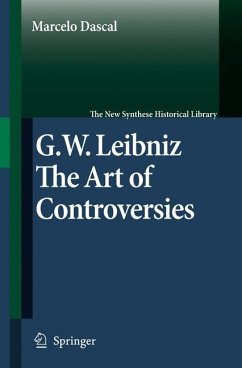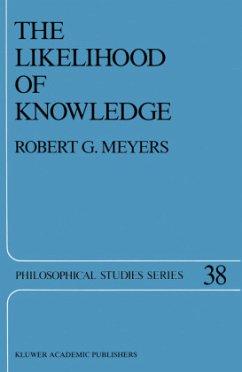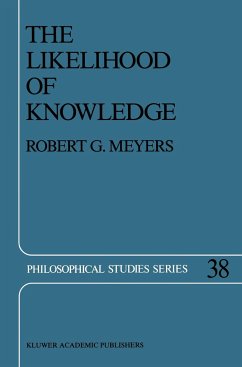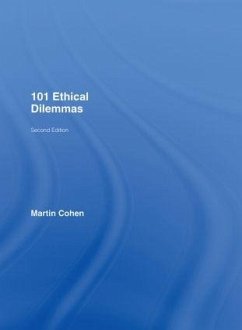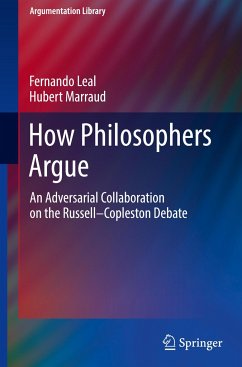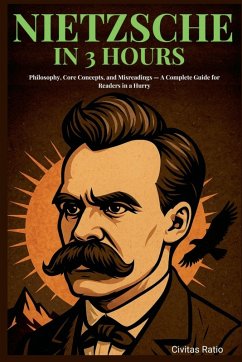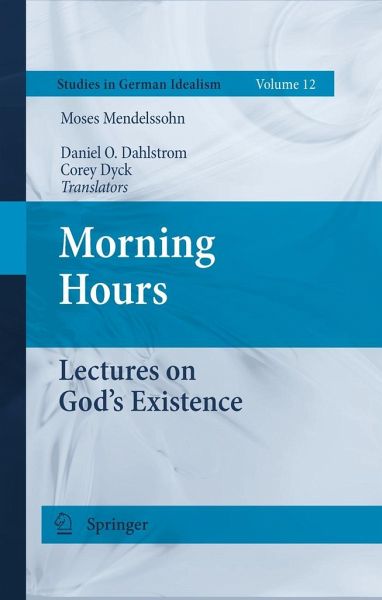
Morning Hours
Lectures on God's Existence
Herausgegeben: Dahlstrom, Daniel O.; Dyck, Corey
Versandkostenfrei!
Versandfertig in 6-10 Tagen
76,99 €
inkl. MwSt.
Weitere Ausgaben:

PAYBACK Punkte
38 °P sammeln!
The last work published by Moses Mendelssohn during his lifetime, Morning Hours (1785) is also the most sustained presentation of his mature epistemological and metaphysical views, all elaborated in the service of presenting proofs for the existence of God. But Morning Hours is much more than a theoretical treatise. It also plays a central role in the drama of the Pantheismusstreit, Mendelssohn's "dispute" with F. H. Jacobi over the nature and scope of Lessing's attitude toward Spinoza and "pantheism". As the latest salvo in a war of texts with Jacobi, Morning Hours is also Mendelssohn's attem...
The last work published by Moses Mendelssohn during his lifetime, Morning Hours (1785) is also the most sustained presentation of his mature epistemological and metaphysical views, all elaborated in the service of presenting proofs for the existence of God. But Morning Hours is much more than a theoretical treatise. It also plays a central role in the drama of the Pantheismusstreit, Mendelssohn's "dispute" with F. H. Jacobi over the nature and scope of Lessing's attitude toward Spinoza and "pantheism". As the latest salvo in a war of texts with Jacobi, Morning Hours is also Mendelssohn's attempt to set the record straight regarding his beloved Lessing in this connection, not least by demonstrating the absence of any practical (i.e., religious or moral) difference between theism and a "purified pantheism".






